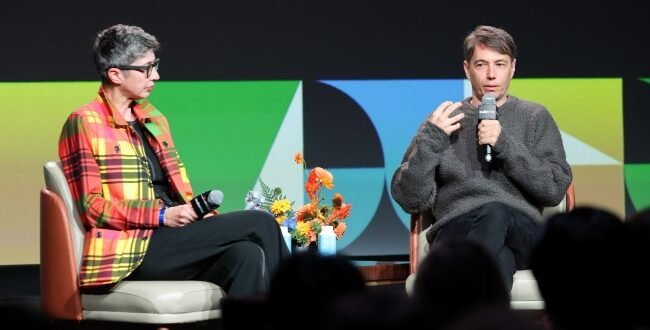For those still hoping that the entertainment industry will return to its old form after years of disruption thanks to streaming, the COVID-19 pandemic, and the WGA and SAG-AFTRA strikes, Sean Baker has some news for you. Speaking at IndieWire’s inaugural Future of Filmmaking Summit on November 2 in Los Angeles, Baker expressed angst over the current state of cinema and told the crowd that keeping the medium alive would require a fight.
“It’s been forever since we said the death of cinema is here, but I really do feel that right now, it is at its greatest threat of, unfortunately, the way we know it, dying because of a lot of things that have happened over the last five years,” said Baker. “Audience habits have changed because of COVID, because of streaming, we’re losing our theaters daily. The theatrical experience — seeing a movie in a theater with a crowd, with an audience — you can’t get that experience watching it at home no matter how good your system, no matter what 4K, 6K, 80-inch television you have set up. It’s not the same, it’s not that communal experience. I think we’re losing that, and so it’s gonna take everybody to battle against it.”
Baker went on to advocate for what he sees as a crucial pillar of cinema: exclusive theatrical release windows. The auteur used Warner Bros. Discovery’s recent handling of Clint Eastwood’s “Juror #2” as an example, saying that films that skip wide theatrical releases to prioritize streaming end up diminishing their own cultural relevance. He took particular issue with the idea that putting films exclusively in theaters is “elitist” since it prevents streaming audiences from accessing them sooner.
“I think [studios] forget that releasing films in theaters first, it’s not an elitist thing. Everybody will eventually see the film, but what it is — putting it out there and exhibiting it the way that is the most ideal way of presenting it to audiences — it elevates the importance,” Baker said. “Number one, people have to actually schedule their night, spend money, travel to a theater. I think it ups the importance of it in our minds.”
In addition to releasing more films in theaters and supporting both the big chains like AMC and Regal, as well a the “mom-and-poppers,” Baker also thinks both studios and filmmakers have to find a way of bringing down costs, especially in America where inflation has driven up prices.
He believes that recent success stories in the independent film world — including his own — have proven that it’s possible to do great work on tiny budgets. He put the impetus on filmmakers and executives to find creative ways to save money on production, which could be passed onto consumers in the form of lower prices and creatives as back-end compensation.
“When I heard that Brady Corbett made ‘The Brutalist’ for $9.6 million, that’s incredible. That’s a film that shot on Vistavision, a period piece shot in multiple countries. That’s so impressive. And that’s how we should be making films,” said Baker. “‘Anora’ was made for $6 million, we put all the money on the screen, we didn’t have trailers, we did it total indie, old-school, guerilla style. What’s wrong with that?”
Source link



